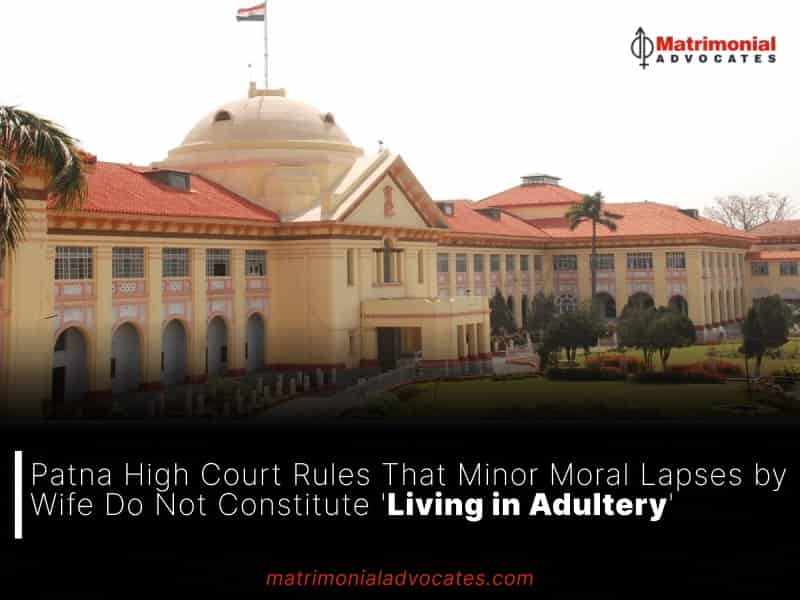
The Court said that any physical relationship of a woman with any person prior to her marriage is not “adultery”.
The Patna High Court recently clarified that the term ‘living in adultery’ under Section 125 of the Code of Criminal Procedure (CrPC) refers to a sustained pattern of behavior, rather than isolated incidents of “immorality.”
According to Section 125(4), a wife is not entitled to maintenance from her husband if she is found to be living in adultery.
Justice Jitendra Kumar observed that while “one or two lapses from virtues” might amount to acts of adultery, they are insufficient to establish that the woman was “living in adultery.”
“A few moral lapse and a return back to a normal life can not be said to be living in adultery. If the lapse is continued and followed up by a further adulterous life, the woman can be said to be “living in adultery”,” the Court said.
The Court further stated that a woman’s physical relationship with any person before marriage does not fall under the definition of “adultery.”
“However, adulterous life of any wife subsequent to her marriage is undoubtedly a disqualification for any married wife to get maintenance from her husband,” it added.
The Court made these observations while considering a husband’s appeal against a family court order that required him to pay ₹3,000 per month to his divorced wife and ₹2,000 per month to their minor daughter.
The husband contended that his wife was not entitled to maintenance due to her alleged illicit relationship with her brother-in-law. He also denied paternity of the child, claiming she was not his biological daughter.
However, the Court noted that he did not present any convincing evidence to back up his allegations.
“In the case on hand, I find that the petitioner-husband has not made any specific pleadings regarding adulterous life of his wife xxx. He was required to give details of the adulterous life of his wife with reference to time and place beside giving the name of the adulterer. But I find that in his pleadings and evidence, except bald allegation that his wife was having illicit relationship with her brother-in-law, viz., xxx prior and subsequent to the marriage, there is no specific details regarding such life of his wife.”
Regarding the issue of paternity, the Court cited Section 112 of the Evidence Act, which presumes that a child born during the course of a valid marriage is the legitimate offspring of the husband. This presumption remains unless the husband can demonstrate that he had no access to his wife during the period when the child could have been conceived.
In this case, the Court observed that the child was born while the marriage was still valid, creating a mandatory legal presumption that she is the petitioner’s legitimate daughter.
The Court also concluded that the maintenance amount granted by the family court was fair and reasonable.





